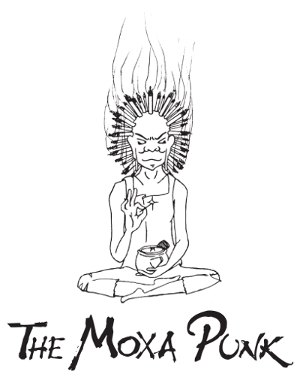bindi for health
When I first started studying Chinese Medicine a weight-training Chiropractic student asked me about the effect of tribulus terrestis supplements on testosterone production. While I knew that it had been claimed to increase levels of endogenous testosterone, and that it was said that Eastern European strength athletes were dedicated users, I had to tell him that the scientific literature didn’t support such a claim, and that its Chinese Medicine properties did not suggest that it would have that kind of biological effect.
While I no longer have access to the academic databases that I had at University, a quick google scholar search suggests that there is still not the kind of evidence that is demanded of a biological agent’s effectiveness:
http://www.tandfonline.com/doi/abs/10.3109/19390211.2014.887602
Some years before I had asked an experienced Chinese doctor, the redoubtable Phillip Chu, about using tribulus as a supplement. He had a way of asking, “Why?” that suggested the question was foolish, and told me to trust the nutitrion of healthy foods. I’ll discuss this a bit more some other time.
However I was recently told that a major pharmaceutical company was planning to market a tribulus extract to improve male sexual function and fertility. Again I do not have good academic search capabilities these days, but I did find a review that concluded that evidence is emerging that tribulus may have aphrodisiac effects without affecting testosterone levels, but couldn’t find meta-analysis of effects on indicators of reproductive health such as sperm counts and motility. Presumably the pharmaceutical company has conducted its own trials to support its marketing.
There is something interesting to this from a Chinese Medicine perspective. While there are popular patent medicines sold to improve male reproductive health that have effects that could correspond to boosting androgen levels, most Western males who consult a Chinese Medicine practitioner to improve their reproductive health are treated with medicinals and acupuncture protocols that cool, calm, moisten, and move stagnation and blockages associated with emotional constraint.
Tribulus, or 白蒺藜 (bai ji li) is a medicinal that moves stagnation and blockages associated with emotional constraint, it also has a calming effect that relieves sensations like blood rushing to the head with anger. So is this where I conclude that Chinese Medicine always knew that tribulus was good for male reproductive health? Well, no. Interestingly, despite it having properties that would make it appropriate it is not often used for this, as it is not part of the more standard combinations of medicinals that cool, calm, moisten, and move. However the famous doctor Qin Bo-Wei did incorporate it in his standard formula for moving stagnation.
Where does this leave us. Reductionist medicine is beginning to establish that tribulus’ reputation as an aphrodisiac may be merited. A pharmaceutical company will market a tribulus extract supplement to improve male reproductive health that would seem to be based more on its reputation than the available evidence. The Chinese Medicine properties of tribulus make it appropriate for helping many Western males but while it could be used other medicinals with similar properties are prescribed more often.
Perhaps there’s a cultural aspect that could make things a little clearer. The medicinals that are traditionally used in China to enhance male sexual function are tonics that have effects that could be seen to correspond to the manifestations of higher androgen levels. But these are inappropriate for most westerners and even for a number of modern Chinese for whom treatments containing medicinals with similar properties to tribulus are better. The aphrodisiac reputation of tribulus is part of the Indian herbal tradition, and could have been transported to the west. In the modern west increased sexual performance is associated with higher androgen levels so it was thought that tribulus must boost testosterone production, but now it appears that isn’t how it works. Maybe it’s by a biological action analogous to moving, unblocking, and easing emotional constraint that tribulus has it’s aphrodisiac effects on westerners and that Chinese Medicine told you so all along.



Comments are Disabled